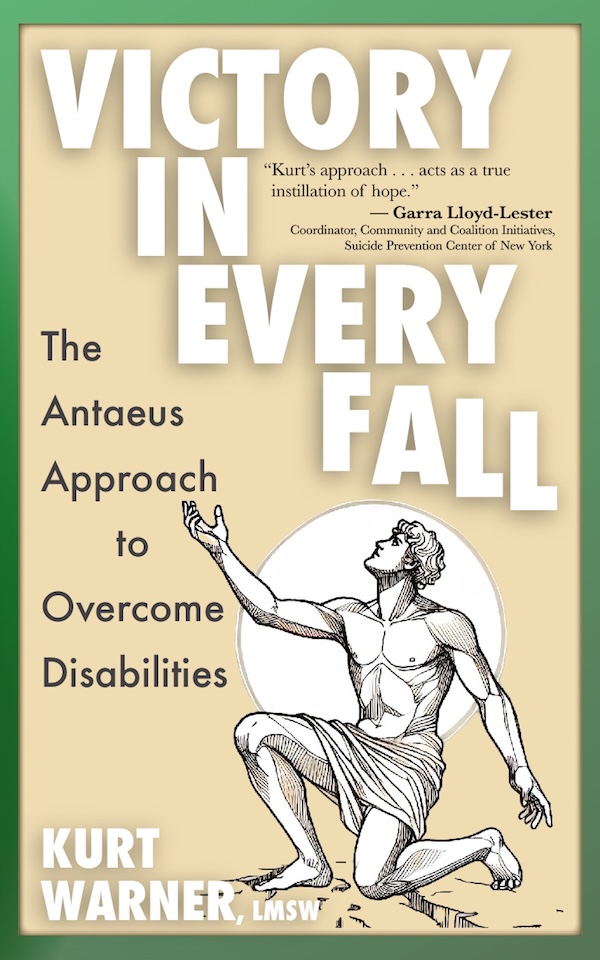Kurt Warner MA ‘13 has taken the struggles of his personal life and turned them into a message of resilience in his new book “Victory in Every Fall: The Antaeus Approach to Overcome Disabilities.”
A psychotherapist and mental health advocate, Warner details his journey in overcoming his obsessive-compulsive disorder, bipolar disorder and traumatic brain injury. Reflecting on his time at BU, Warner shares how his experiences and life challenges shaped his journey. A book meant to offer a message of hope and strength for readers, “Victory in Every Fall” has a simple message — every fall is a chance to rise stronger.
When asked about his inspiration for the book, Warner reflected on his desire to help others who may be going through challenges. As a licensed social worker and therapist, Warner works with people facing immense obstacles every day. Warner himself struggles with his health, shaping not just his writing but his experiences as well.
“I see a lot of people go through a lot of difficult challenges all the time,” Warner said. “I know that I have experienced my own. I thought that by discussing the ones that I’ve struggled with, I could inductively give concepts that might help other people deal with theirs.”
Warner recalled his time at BU as a critical period for his own growth, and it is reflected in the book. The chapter “Antaeus at College” specifically details navigating mental health challenges as a student.
“I was very grateful to a lot of my professors,” Warner said. “They were always compassionate and wonderful when I would discuss it with them. One of whom I would say, Brian Flynn over in the social work department, he was incredibly helpful and understanding whenever I was having the issues I was having.”
The story that inspired “Victory in Every Fall” is the Greek myth of Antaeus, a giant whose strength came from his mother, the Earth. Each time he was thrown down in his wrestling matches, he rose stronger than before, as long as he touched the ground. This myth is the pillar of the book, a story that Warner uses to show that hardship leads to greater strength should you let it.
To Warner, resilience is not just coming back from hardship — it is rising again and becoming stronger. His experiences with mental health issues have shaped his view that these struggles can become sources of strength rather than obstacles. With this lens, every difficulty is an opportunity to grow, much like Antaeus gaining strength each time he was wrestled down. Throughout the book, Warner emphasizes one strategy for overcoming struggle — humility.
“The humility to say, you know, ‘I can’t do this all on my own,’” Warner said. “’I need help. I need to talk about it. I need to be open.’ And that alone lifts the weight and gives a strength that I think is immeasurable.”
Warner explained how this approach helped him navigate obstacles, including a traumatic brain injury that left him unable to walk or talk, as well as the compulsions of OCD and the depression of bipolar disorder. By leaning on his support systems, Warner was able to find strength at his most vulnerable.
He said the act of writing allowed him not only to heal but also to share his story in the hopes of helping others. Looking ahead, Warner continues to make helping others his mission, both through his work as a social worker and his writing projects.
Warner hopes “Victory in Every Fall” will inspire students and faculty to find strength in their challenges. By sharing his story of resilience, Warner wants others to see that no matter how difficult life is, there is always a way to rise stronger.



